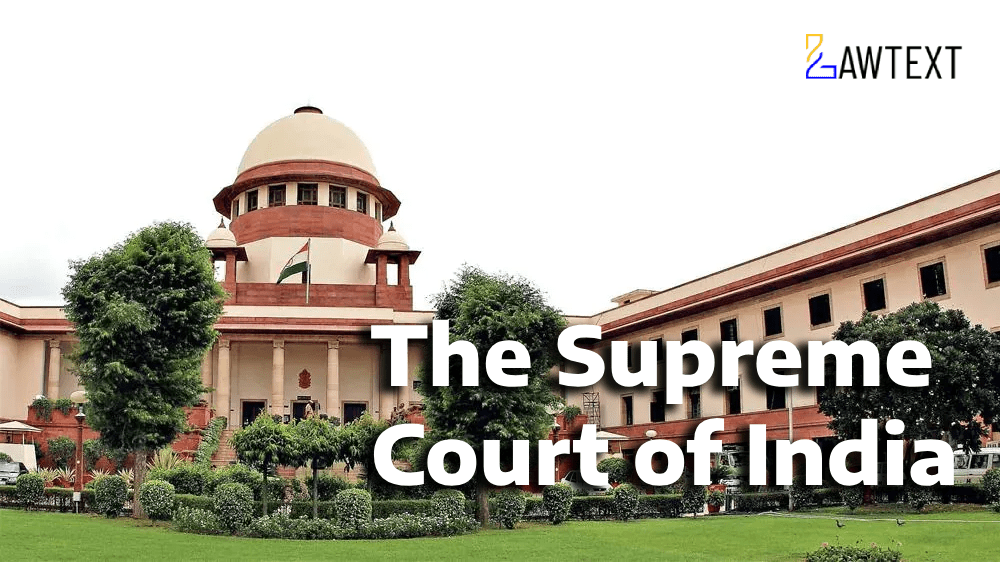

The Supreme Court held that non-compliance with Article 22(1) of the Constitution of India and Section 50 of the Code of Criminal Procedure, 1973 (CrPC) renders an arrest illegal.
The appellant was not informed of the grounds of arrest, violating fundamental rights, thereby nullifying subsequent orders of remand.
Section 50A of CrPC mandates that both the arrestee and their nominated persons be informed of the arrest and its grounds to facilitate legal assistance.
The Court ruled that informing the appellant’s wife does not satisfy the constitutional mandate, as the arrested person must personally receive this information.
The Supreme Court directed the State of Haryana to amend its procedures to prevent future violations, ensuring strict adherence to constitutional and statutory safeguards during arrests.
Constitution of India: Article 21 – Right to Life and Liberty – Article 22(1) – Right Against Arbitrary Arrest
Code of Criminal Procedure, 1973: Section 50 – Right to be Informed of Grounds of Arrest – Section 50A – Obligation to Inform Relatives – Section 57 – Production Before Magistrate within 24 Hours
Indian Penal Code, 1860: Section 409 – Criminal Breach of Trust – Section 420 – Cheating – Section 467, 468, 471 – Forgery – Section 120-B – Criminal Conspiracy
Bharatiya Nagarik Suraksha Sanhita, 2023 (BNSS): Section 35 – Police Powers to Arrest Without Warrant
Fundamental Rights Violation – Illegal Arrest – Failure to Inform Grounds – Unconstitutional Detention – Police Accountability – Handcuffing – Judicial Scrutiny
The case arose from the appellant’s challenge to his arrest, contending that he was not informed of the grounds for arrest, violating his constitutional rights under Article 22(1) of the Constitution of India and Section 50 of CrPC.
The appellant, Vihaan Kumar, sought relief from the Supreme Court, challenging his arrest by Haryana Police and seeking his immediate release on grounds of constitutional violations.
The appellant was arrested on 10th June 2024 in connection with FIR No. 121 of 2023, registered under Sections 409, 420, 467, 468, 471, and 120-B of the Indian Penal Code (IPC). However, he contended that:
a) He was not informed of the grounds of arrest.
b) The arrest memo did not mention the grounds of arrest.
c) The police diary entry merely stated that he was arrested, without detailing the communicated grounds.
d) His wife was informed instead of him, which did not satisfy the constitutional requirement.
The Punjab and Haryana High Court dismissed his plea, holding that he was informed about his arrest and remanded him to custody.
The Supreme Court, upon review, found that the High Court equated mere arrest information with grounds of arrest, which is an incorrect interpretation of Article 22(1).
Whether the failure to inform the appellant of the grounds of arrest violated Article 22(1) of the Constitution of India.
Whether such a violation renders the arrest illegal and vitiates subsequent judicial custody.
Whether communicating the grounds of arrest to the appellant’s wife satisfies the constitutional mandate.
a) His fundamental rights under Article 22(1) were violated, as he was never informed of the grounds for his arrest.
b) The High Court erred in concluding that he was informed of the arrest, without verifying whether the grounds of arrest were communicated to him.
c) Relying on Pankaj Bansal v. Union of India and Prabir Purkayastha v. State (NCT of Delhi), it was argued that non-compliance with Article 22(1) vitiates the arrest and mandates immediate release.
a) The appellant was informed of his arrest, and his wife was also made aware of the grounds.
b) The case diary entry recorded that the appellant was informed of the grounds of arrest at 6:10 PM on 10th June 2024.
c) The remand report filed before the Magistrate contained the grounds of arrest, and thus, compliance with the law was met.
The Supreme Court held that mere information of arrest does not amount to compliance with Article 22(1). The police were required to inform the appellant himself of the grounds, and failure to do so vitiated the arrest.
The Court found that no contemporaneous records were presented proving that the grounds of arrest were communicated.
Informing the appellant’s wife instead of the appellant did not satisfy the constitutional requirement.
The Supreme Court declared the appellant’s arrest illegal and ordered his immediate release.
The State of Haryana was directed to issue guidelines to prevent future violations of constitutional rights during arrests.
The Court clarified that this decision does not affect the pending criminal trial but ensures due process in future arrests.
Citation: 2025 LawText (SC) (2) 48
Case Number: CRIMINAL APPEAL NO. OF 2025 (Arising out of Special Leave Petition (Crl.) No. 13320 of 2024)
Date of Decision: 2025-02-07
Case Title: VIHAAN KUMAR VERSUS STATE OF HARYANA & ANR.
Before Judge: (Abhay S. Oka J. , Nongmeikapam Kotiswar Singh J.)
Appellant: VIHAAN KUMAR
Respondent: STATE OF HARYANA & ANR.